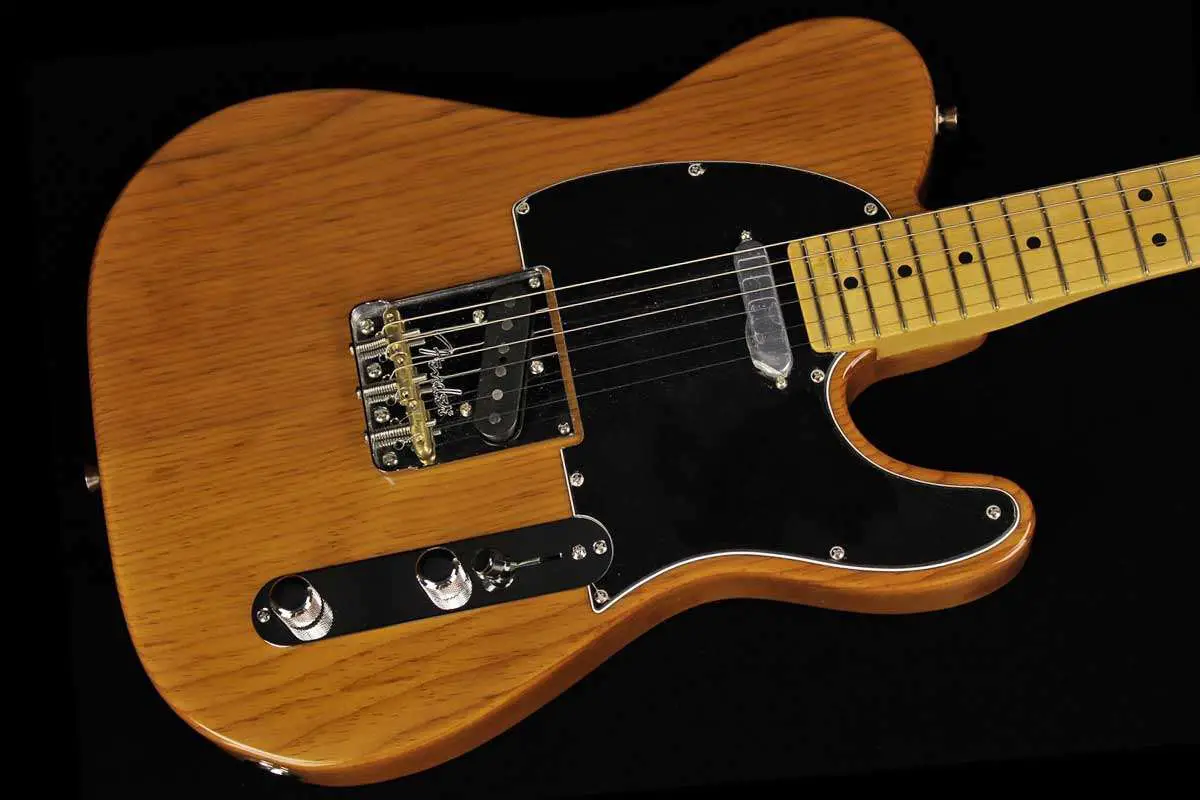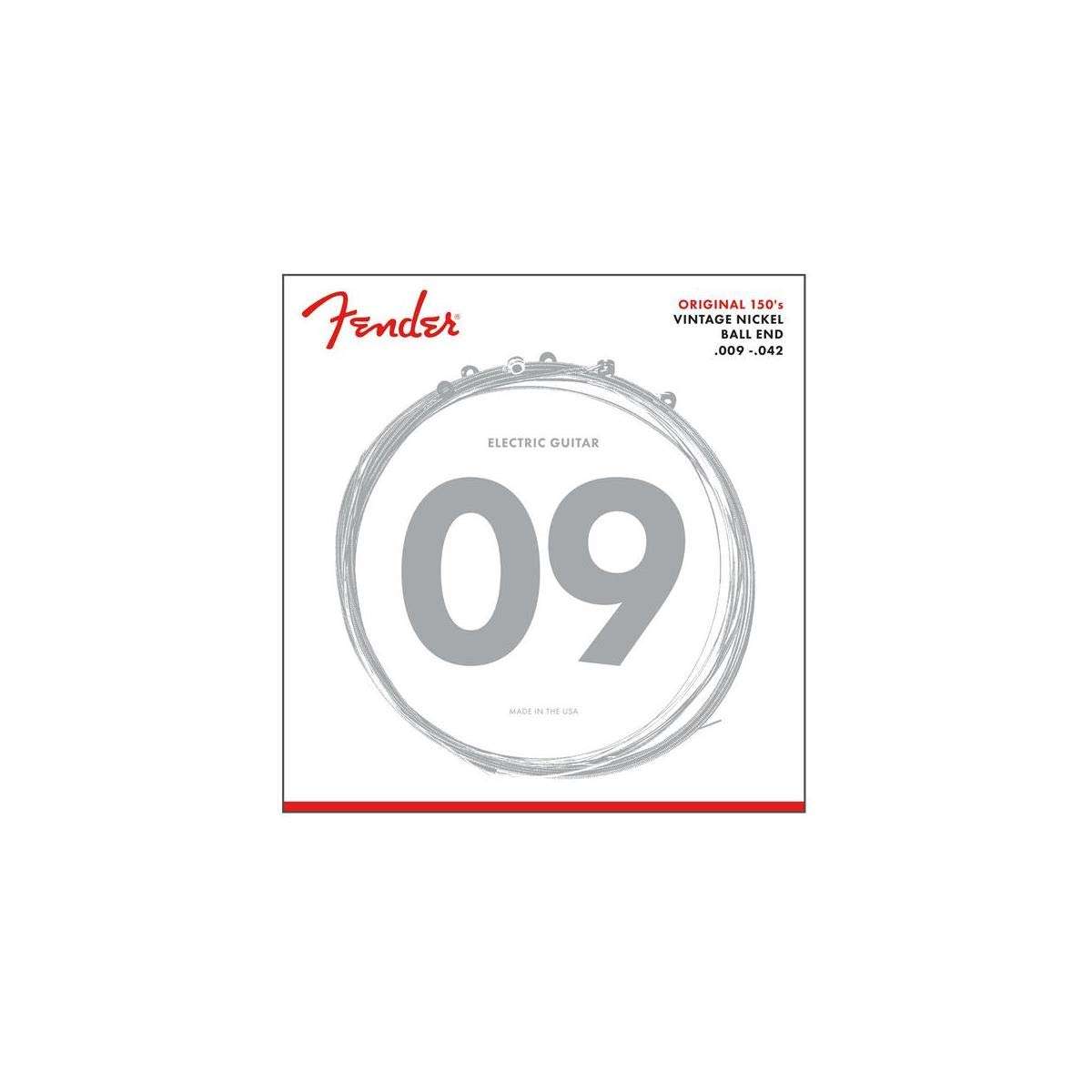When it comes to electric guitars, the choice of strings plays a pivotal role in shaping the instrument’s tone & playability. Each type of string brings its own character and feel, influencing everything from the guitar’s brightness & warmth to its response to your touch. The Fender Telecaster, in particular, with its distinctive twang and clarity, has a dedicated following and a storied place in music history. Finding the best strings for Telecaster is crucial for enthusiasts to discover strings that complement the guitar’s inherent sound characteristics & their individual playing style.
The market offers a variety of string types, including nickel-plated steel, stainless steel, pure nickel, and coated strings, each serving a different tonal preference and playing requirement. Nickel-plated steel strings are celebrated for their balanced tone, versatility, and are considered a standard for many Telecaster players. Stainless steel strings, on the other hand, provide a brighter, more cutting edge, suitable for players who seek extra presence and durability. Pure nickel strings exude a warmer, vintage vibe, reminiscent of classic rock and roll tones, while coated strings offer extended lifespan and reduced finger noise, at a premium.
When selecting strings for a Telecaster, players should consider factors such as gauge, or thickness, which affects both tone and playability, and the material, which influences sound and longevity. Lighter gauge strings bend more easily and offer a brighter sound, suitable for lead players or those with a lighter touch, while heavier gauges bring a fuller tone and increased volume, favored by rhythm players or those with a more aggressive style.
With the unique character of the Telecaster and the myriad string options available, we delved into a comprehensive analysis to identify the best strings that complement this iconic guitar. Whether you’re gigging regularly, recording in the studio, or simply enjoying the Telecaster at home, finding the right strings is vital in unlocking its full potential. Our thorough examination of various string sets aims to guide you to make a sound choice that enhances your playing experience.

Top Telecaster Strings
Choosing the right strings for our Telecaster can significantly impact our playing experience and guitar tone. We’ve compiled a list of the top strings that cater to the unique needs of Telecaster guitars. These options will help us achieve that bright, cutting tone the Telecaster is famous for, while also offering durability and comfort for various playing styles.
Fender Vintage 9-42 Strings

We think these strings are a must-try for any Telecaster player looking for that classic vibe and dependable performance.
Pros
- Effortless bendability and vintage tone
- Bullet-end design enhances tuning stability
- Manufactured in the USA with high-quality materials
Cons
- Pricier than some other options
- Might be too mellow for players seeking a brighter sound
- Not suited for those preferring modern hex-core strings
Replacing strings on your Tele can really breathe new life into your instrument, and that’s precisely what happened with these Fender Vintage strings. The pure nickel design imparts a warm, rich tone that harks back to the golden days of rock n’ roll. As soon as I strung them up, the difference was palpable, both in sound and feel.
The tuning stability of these strings is second to none, thanks to the patented bullet-end. I was able to dig into some deep bends without a hint of slipping, which is a testament to their design. It’s reassuring when you can trust your strings to hold up during a passionate performance.
Despite the perks, they do come at a price that not everyone might be comfortable with. Moreover, if your style leans heavily towards brighter, more cutting tones, these might dampen your sparkle. But for our Tele, the tonal transformation was worth every penny. It’s as if those strings were made to complete the vintage sound we were chasing.
Ernie Ball Super Slinky RPS

We think these strings are a fantastic choice for any Telecaster player seeking reliable performance and a classic tone.
Pros
- Enhanced tuning stability with RPS technology
- Renowned tone used by industry legends
- Impressive longevity and strength
Cons
- May not suit players who prefer a different brand’s tone profile
- Brass winding could feel different to some
- Not the cheapest option available
There’s a certain magic to a freshly re-strung guitar that every player cherishes, especially with a set of strings that promises enhanced durability and tuning stability. Our recent session with the Ernie Ball Super Slinky RPS strings left us impressed by the comfortable playability they brought to our Telecaster. It’s not just about the feel, though—the signature brightness and crisp attack we love in a good set of nickel-wound strings were ever-present. These strings have an unmistakable vibe that seems to complement the Tele’s inherent twang perfectly.
Our testing showed that the RPS technology — a brass wire wrapped around the string’s ball-end — isn’t just a gimmick. It really does minimize the slippage that can lead to detuning and annoying string breakages. We bent those strings through bluesy licks and plenty of country-style double-stops without a hitch. They felt reliable and sounded consistent, something we value highly during long playing sessions or critical recording moments.
Always worth mentioning is the lineage of artists who trust Ernie Ball’s Slinky strings. When you strike a chord or let a single note ring out on your Telecaster, there’s an unspoken confidence that comes with using a product supported by the pros. While no string is a one-size-fits-all solution, we appreciate how these strings cater to a variety of playing styles, from gentle fingerpicking to more aggressive pick-driven lines.
In conclusion, if you’re after that quintessential Telecaster sound with a professional level of reliability, these strings deserve your attention. They’ve got a long-lasting tone and resilience that can really give you peace of mind whether you’re gigging or recording.
D’Addario XL Nickel Strings

We think every Telecaster player should consider these strings for their consistent performance and versatility across genres.
Pros
- Well-balanced tone that complements the Telecaster’s natural sound
- Reliable durability keeps you playing longer without the hassle of frequent changes
- Generous inclusion of three sets provides excellent value for money
Cons
- The brightness might not suit players looking for a warmer, mellower sound
- Some guitarists might prefer a different gauge for more specific tonal qualities
- Reward points are less of an incentive for those who don’t purchase strings often
After strapping these strings onto our Telecaster, the first thing that struck us was the immediate improvement in our overall tone. The nickel-plated steel really brought out a clear, bright sound, making every chord and lead line pop.
During a rigorous couple of weeks of testing, they withstood heavy bends, aggressive strumming, and various tunings. We noticed these strings maintained their intonation and feel, which is a testament to their durability.
One thing we appreciate is the three-pack setup. Not only is it convenient, saving us from late-night runs to the music store, but also budget-friendly. All in all, resounding chords, slick solitaries, and a steadfast presence under fingers – these strings are an all-rounder for the Telecaster enthusiast.
Elixir Light Nanoweb Strings

We believe these strings are a solid choice for Telecaster players seeking both durability and a vibrant tone.
Pros
- Remarkably long-lasting with robust tone preservation
- Resistant to corrosion and reduces finger squeak
- Maintains excellent tuning stability
Cons
- Pricier compared to uncoated strings
- Some may find the feel less natural than traditional strings
- Not everyone prefers the brightness of coated strings
We’ve strung up our Telecaster with Elixir’s Nanoweb strings and the experience has been noteworthy. They ring out with a brightness that cut through the mix without being shrill. Playing through chord progressions and riffs, the strings responded with precision and dynamic punch. These Elixirs give us the confidence to play gig after gig, hardly giving a second thought to a string change.
During extensive playing sessions, we appreciated the reduced finger noise, attributing it to the ultra-thin Nanoweb coating. This feature is particularly useful in recording situations where excessive string squeak can be a nuisance. Despite the initial outlay being higher, we’ve found the longevity of the strings offsets the initial cost over time.
We’ve tested these strings in various conditions, including humid environments, and noticed impressive resistance to corrosion. This resilience adds to tuning stability, keeping our Tele sounding in tune for longer periods – a big plus when you want to focus on playing, not tuning. However, the tactile difference from uncoated strings might not suit all, especially players used to a more traditional string feel.
Buying Guide
When selecting strings for a Telecaster, we consider various features to ensure the best playability and tone. We’ll look at gauge, materials, and string type as key factors.
Gauge
The gauge, or thickness, of strings affects both tone and playability.
Lighter Gauges: (.009-.042)
- Easier to play
- Brighter tone
- More prone to breaking
Heavier Gauges: (.011-.056)
- Fuller tone
- Increased sustain
- More finger strength needed
We recommend starting with a light gauge (.009-.042) as a balanced option for beginners.
Materials
Strings come in different materials, each influencing tone and longevity.
- Nickel-Plated Steel: Balanced tone with a good combination of warmth and brightness.
- Pure Nickel: Warmer and richer tone, often preferred for vintage-style sounds.
- Stainless Steel: Brightest tone with added corrosion resistance.
String Types
Strings can be either roundwound or flatwound.
- Roundwound: Brighter tone and more textured feel. (All of our picks above are roundwound)
- Flatwound: Darker tone and smoother feel.
Remember, the best strings for us depend on personal preference and playing style. Testing different strings is the most effective way to determine which suit our needs.
